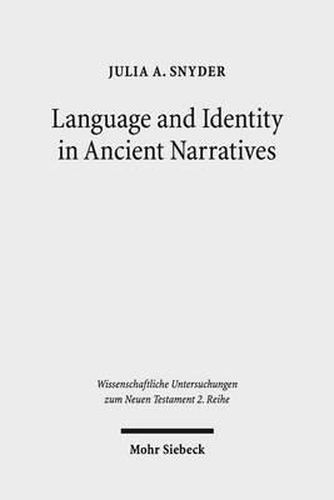Readings Newsletter
Become a Readings Member to make your shopping experience even easier.
Sign in or sign up for free!
You’re not far away from qualifying for FREE standard shipping within Australia
You’ve qualified for FREE standard shipping within Australia
The cart is loading…






When a Christian writer refers to Jesus as the Lord, what does it signify? Is it primarily a way of making a political or theological statement, or might social concerns have had more influence on the writer’s choice of words? Studies of early Christianity regularly depend on a nuanced understanding of lexical significance, but current research often fails to consider social aspects of what words mean. Julia A. Snyder argues that methodological improvements are needed in how lexical significance in ancient Greek texts is determined, based on an analysis of the relationship between speech patterns and addressee identity in the Acts of the Apostles, Acts of John, and Acts of Philip. She also illustrates how sociolinguistic variation contributes to characterization and the construction of Christian identity in the narratives, how it sheds light on the rewriting of ancient texts, and how it informs the question of whether apostolic narratives were produced for evangelistic purposes.
$9.00 standard shipping within Australia
FREE standard shipping within Australia for orders over $100.00
Express & International shipping calculated at checkout
When a Christian writer refers to Jesus as the Lord, what does it signify? Is it primarily a way of making a political or theological statement, or might social concerns have had more influence on the writer’s choice of words? Studies of early Christianity regularly depend on a nuanced understanding of lexical significance, but current research often fails to consider social aspects of what words mean. Julia A. Snyder argues that methodological improvements are needed in how lexical significance in ancient Greek texts is determined, based on an analysis of the relationship between speech patterns and addressee identity in the Acts of the Apostles, Acts of John, and Acts of Philip. She also illustrates how sociolinguistic variation contributes to characterization and the construction of Christian identity in the narratives, how it sheds light on the rewriting of ancient texts, and how it informs the question of whether apostolic narratives were produced for evangelistic purposes.